Confidential Consulting. We listen deeply, synthesize, and provide original, powerful, idea-solutions and strategies. We value collaborative thinking for creative solutions.
Led by A. James (Jim) Heynen who’s worked with and learned from more than 1,500 organizations. A leader in organizational theory, Jim organizations as living, communicating organisms in rapidly-change, vigorously-interactive environments.
RTM partners with organizations who want a vibrant culture, a persuasive vision, a convincing mission, values embodied in action and strategies that soar. We partner with you to achieve these goals, leading to unparalleled business and mission success
rtm.thinks
Confidential Consulting
Serve the CEO with Strategic "second opinions"
Corporate Problem Solving
Corporate Retreats for Board & Executive Staff
Serving Private Equity
In late 2015 Kinderhook Industries, a private equity firm based in New York City, bought two environmental waste and recycling companies hoping to merge them as a platform for additional acquisitions. Six months later, no merger had happened. The companies had learned to keep each other at a polite distance. In April 2016, RTM was asked to prepare the companies for merger. We brought managers from both companies into highly structured, confidential conversations. We created “collaboration teams” to build merger strategies. RTM’s communication team led planning of a single set of values, new mission, new vision, and new branding with a new name: ACV Enviro. The merger platform was ready when the first CEO arrived in the Fall (2016).
See ACV Environmental M&A Project Detail>
Serving Philanthropy
At the dawn of the 1990s, the American AIDS epidemic was exploding. The Council of Michigan Foundations rallied several members – Kellogg, Mott, Kresge and others -- to create a pooled fund. When the founder of RTM was asked to outfit the fund a responsive structure, he created a novel supporting organization that enabled grant making to unconventional but effective grassroots groups. By 1994, the Michigan AIDS Fund had became the paradigm for regional funds in eleven other States.
Serving Family-Owned Enterprise
Baker Publishing Group is a respected name in the highly competitive American field of Christian publishing. For 70 years and three generations Baker has been family-owned and family-led. In 2010, CEO Dwight Baker believed that to be sustainable for future generations of the family, the company needed to build a trusted governance body of non-family members. RTM worked with the Baker family to reduce fear of losing the company to “outsiders” while building a vision for strong governance. In 2012, a newly organized “President’s Council” was created and filled with veteran corporate leaders from outside the Baker family. In 2016, the family unanimously agreed that the Council should be transformed into a Board of Directors.
Simulated Business Workshops
In 1985, General Motors and the United Auto Workers agreed to a collaborative effort to bring global business and economic education to the entire GM workforce. The biggest challenge? The workforce spanned thousands of high-school dropouts and hundreds of PhD engineers. How could one educational effort serve everyone? One of RTM’s founders designed an unprecedented program of “Simulated Business Workshops” built entirely out of case studies, using simple-to-complex design principles. Beginning in January 1986, 50-60 employees gathered for three days of intense case-study learning and discussion. The outcome was a workforce that embraced strategies for competition with non-American manufacturers in the twenty years ahead.
Serving Healthcare Systems
In the mid-1990s, the Illinois Health & Hospital Association (IHHA) was watching membership of rural and small hospitals shrink as one small-town hospitals after another shuttered its doors. One of RTM’s founders first led a study of the surviving hospitals and then devised, with hospital and IHHA leaders, a survival plan based on partnering, joint buying, shared medical staffing, new technology and community responsiveness (including new funding strategies). Of the at-risk hospitals involved, most thrived and all but one survived.
Long-term Sustainability of the Institute
The Issachar Fund and Templeton Foundation, two American philanthropies, were asked in 2015 to provide funding for The Faraday Institute for Science and Religion at St. Edmund’s College, Cambridge University in England. The philanthropies were concerned about the long-term sustainability of the Institute and asked RTM’s help. Our study demonstrated that the Institute was, in fact, not a viable entity: It lacked a cohesive and functional organization, sustained governance, long-term leadership and a workable financial plan. Individually, the Institute’s co-leaders were brilliant; organizationally, “there was no ‘there’ there.” RTM’s study produced findings, conclusions and recommendations to enable the Institute to become a sustainable organization with philanthropic support.


